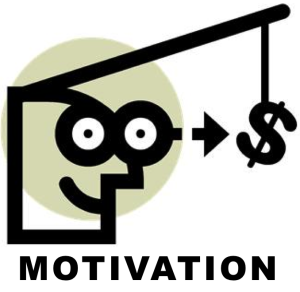How can we make healthcare more productive?
How can we make healthcare more productive? was the topic of a LinkedIn discussion started by Joe Flower, author of the book, “Healthcare Beyond Reform: Doing It Right For Half The Cost.” It generated some lively discussion and prompted me to respond as well.
My response to How can we make healthcare more productive?
 CHANGE THE TERMINOLOGY – America has excellent MEDICAL Care, if you can afford it, but we have a horrible HEALTH Care system and desperately need to focus more on health & wellness. We spend twice as much as other nations but still live sicker and die younger, per the WHO. That means we “should” be able to cut costs in half at least while simultaneously improving care quality, patient satisfaction, worker productivity, and GDP.
CHANGE THE TERMINOLOGY – America has excellent MEDICAL Care, if you can afford it, but we have a horrible HEALTH Care system and desperately need to focus more on health & wellness. We spend twice as much as other nations but still live sicker and die younger, per the WHO. That means we “should” be able to cut costs in half at least while simultaneously improving care quality, patient satisfaction, worker productivity, and GDP.
START WITH EDUCATION – We now teach new doctors how to diagnose and treat illness & injury, not how to prevent it, and that feeds into our fee-for-service SICK Care system that profits from doing more – more tests, more procedures, more drugs. Little time is spent teaching medical students about public health and the pillars of health (exercise, nutrition & sleep), because that doesn’t fit into our for-profit business models.
CHANGE THE INCENTIVES – You can’t change behavior without understanding and changing the incentives. When the incentives contradict the marching orders, human nature works against strategy. Take Electronic Medical Records as an example. Hospital A has a financial disincentive to share medical records with Hospital B, because they fear losing the patient and their revenue. Likewise, Hospital B has no incentive to get records from Hospital A, because it could eliminate the need to reschedule tests, and the revenue from them.
BLEND THE INCENTIVES – Stakeholders often measure success differently and thus have conflicting incentives, so it’s important to understand those conflicts. Consider the difference between the Private & Public sector organizations as an example. The private sector measures success in business terms like profit, ROI, and payback period, so they see investments through a relatively short-term lens (quarterly stock price). The profit motive, however, provides a strong incentive to innovate, and it rewards risk-takers. Contrast that with public sector organizations that are able to invest over much longer timeframes because they rely on public funding and seek benefits for society rather than shareholders. Their measurements include things like average lifespan, quality of life, graduation rates, GDP, etc. Public-private partnerships can blend the best attributes of these different incentives.
UNIVERSAL HEALTHCARE – We’re the only major nation that doesn’t view basic healthcare as a human right, but if we had something like Medicare for All, then politicians would have different incentives. Rather than focus on how to cut medical care benefits, there would be pressure to save money and improve corporate performance with policies designed to keep the population well and productive. You see, even Medicare-for-All is not enough by itself.
REWARD INNOVATION – Capitalism and patent protection rewards innovation when there’s competition on a level playing field, but monopoly power can stifle it. That’s especially true when extreme wealth is concentrated in the hands of a few who are then able to use their financial power to get political power and distort the rules & playing field in their favor.
REFORM POLITICS – Note that the Medical Industrial Complex (drug companies, insurers, hospitals, testing companies & equipment providers) currently spends three times as much on lobbying as the military industrial complex, and Citizens United only made the corrupting influence of big money in politics worse. So at the core of fixing healthcare is the need to fix politics. The benefits of doing that would flow down to all sorts of other public policies affecting the cost & effectiveness of health care, including poverty, food supply, environmental contamination, education, infrastructure, etc.
SHAME THE POLITICIANS – Satire can be a powerful weapon to motivate citizens and encourage political activism. This video makes fun of the health care industry by looking at what the airline industry would be like if it worked the same way. (https://www.mhealthtalk.com/if-air-travel-worked-like-health-care/). Other related videos on this site include:
- https://www.mhealthtalk.com/escape-fire-rescuing-healthcare/ (great documentary)
- https://www.mhealthtalk.com/corporate-behavior-and-rising-health-care-costs/
- https://www.mhealthtalk.com/the-waiting-room/ (about poverty)
- https://www.mhealthtalk.com/poverty-in-america-living-below-the-line/
- https://www.mhealthtalk.com/wealth-inequality-healthcare-and-the-economy/
- https://www.mhealthtalk.com/2013/02/a-place-at-the-table-about-poverty-hunger-health/
- https://www.mhealthtalk.com/2012/06/americas-obesity-epidemic-a-big-problem-updated/
- https://www.mhealthtalk.com/fed-up-with-the-food-industry/
- https://www.mhealthtalk.com/sleep-statistics-sleepless-america/
- https://www.youtube.com/watch?v=B8wkeNDAGyM (Choosing to Die)
RELATED MHEALTHTALK ARTICLES
- https://www.mhealthtalk.com/2013/02/why-high-medical-bills-are-killing-us/ (summary of article by Steven Brill, TIME Magazine)
- https://www.mhealthtalk.com/2011/12/innovators-prescription/ (summary of book by Harvard Business School’s Clayton M. Christensen)
- https://www.mhealthtalk.com/public-health-in-2030-alternative-scenarios/
- https://www.mhealthtalk.com/hybrid-model/ (a public/private model of health care)
- https://www.mhealthtalk.com/2014/05/future-of-medicine-not-medicine/ (about nutrition and wellness)
- https://www.mhealthtalk.com/medical-sensationalism-for-profit/ (satire of Dr. Oz)
- https://www.mhealthtalk.com/get-the-health-incentives-right/
3RD PARTY ARTICLES
Why Can’t Hospitals Talk To One Another? (Fortune, 10/9/17) A better question is, Why Won’t They? With no financial incentive to do so, hospitals don’t WANT to share medical records. For example, Hospital A fears losing a customer if they send patient data to Hospital B, and Hospital B prefers to not get that data, because without it they can make more money from re-administering tests. See https://www.mhealthtalk.com/how-can-we-make-healthcare-more-productive/.
ABOUT THE AUTHOR
Wayne Caswell is a retired IBM technologist, futurist, market strategist, consumer advocate, sleep economist, and founding editor of Modern Health Talk. With international leadership experience developing wireless networks, sensors, and smart home technologies, he’s advocated for Big Broadband and fiber-to-the-home while also enjoying success lobbying for consumers. He considers himself independent, but leans left to support progressive policies. (contact & BIO)
